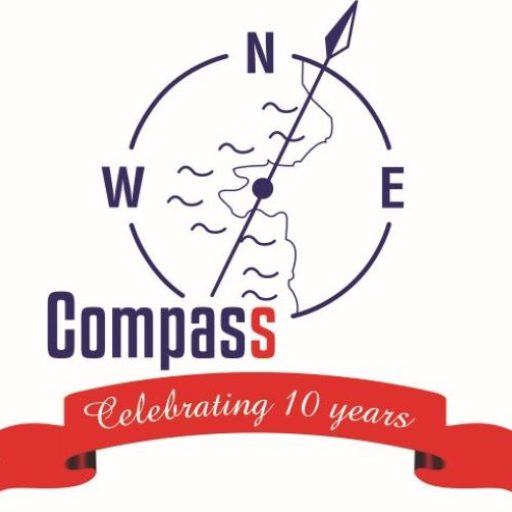What does Fostering mean & FAQs
Fostering provides a stable and secure home for children and young people who are unable to live with their birth parents or relatives for a variety of reasons. These various reasons can be due to neglect, or some form of physical, sexual or emotional abuse. As a result, they may have complex social, emotional or behavioural difficulties that can be challenging at times. The rewards however far outweigh the challenges, and as a foster carer you have the ability to change lives, providing care, love and support to children and young people who need it most.
Children and young people come into the care of the State (Tusla Child and Family Agency) when their birth parents or guardians no longer have the ability to provide appropriate care for them. Foster carers work in partnership with Tusla CFA and the children’s birth families to best meet the needs of the child within their care. A child or young person in foster care will have contact with their birth family. The ultimate goal for most children and young people in foster care is that they are able to return home at some point in the future. As well as welcoming a young person into their home and family, foster carers play an invaluable role in supporting young people, and helping them feel safe, valued, respected and cared for.
Children and young people need patience, security and understanding to help them grow to be responsible adults, live their lives to the fullest and be able to meet and cope with the challenges that face all of us at different stages in our lives. The length of time a child or young person stays with a foster carer depends on individual circumstances. A placement may range from a weekend, to a number of weeks or months to years, until the young person is ready to move on.
Erma Bombeck
Children make your life important
Do I need a spare room to foster ?
Yes. In order to foster with us, you are required to have a spare bedroom in your home. If you have more then one spare room, you can be considered for short term carer for up to two children or young people at a time. You can also provide sibling placements if you have a number of spare rooms available.
What experience do I need ?
To foster with Compass Fostering Services, you would be required to have at least three years’ experience of providing care to children. This could be within your family or friends circle, voluntary or professional setting. If you are unsure you have the experience to foster, please speak to us! Foster carers must have an underlying desire to want to make a difference to a child’s life & enjoy being with young people. They will need to deal patiently with challenging behaviour and have an understanding of the needs of young people going through adolescence who have the added difficulty of disrupted family situations. You don’t require any previous qualifications to become a foster carer, we will provide a comprehensive training programme to best support you in your fostering journey.
Do I receive any training before I become a foster carer?
All full time carers will complete training in: Foundations to Fostering, an Introduction to Social Pedagogy, Management of Actual and Potential Aggression (MAPA), Child Protection – Children’s First, First Aid and Fire Training. Other relevant trainings will be provided and annual refresher trainings. There will be many more training opportunities for you and specific trainings identified to best support the needs of children and young people living with you.
I wonder am I too old to foster?
Your age is not the most important factor when deciding to foster. Many people wait and choose to become foster carers when they are older. The advantage of this is you will have a wealth of life experience, possibly had children and will have more time to be able to foster. Your health is far more important than your age. As children and young people can be very active, it is important that you are physically fit. You and your family GP will be asked to complete a medical health form to determine your ability to foster.
I have health issues; will that stop me from fostering?
Not necessarily. All applicants will undergo a full medical health assessment to determine if they are fit to foster. All applicants are treated equally and only conditions that would impact on your ability to meet the needs of the young person placed with you would prevent you from fostering. Health conditions that could be worsened by becoming a foster carer, therefore putting your health at risk, would exclude you. Any uncertainty in relation to your health can be discussed with the Social Worker.
Can I foster if I have a criminal conviction?
All foster carers undergo Gardai vetting checks. We need to know about all criminal convictions, and this is determined at an early stage of the process. Gardai vetting will be completed on all children and adults over 16 years old in the household. While not all convictions will prevent you from proceeding, there are certain convictions that would prohibit you from becoming a foster carer. Please do not assume that your situation excludes you without discussing it with the Social Worker.
Can I decide the age or gender of a child or young person I foster?
There is such a demand for foster carers in Ireland linked with the huge amount of children and young people in need of foster homes. We will ensure that any young person placed with you is well matched to the needs of both you and the young person. Ultimately a foster carer has the right to turn down placements.
What if there is an emergency?
We have experienced Fostering Workers who will support you through an emergency or placement disruption. Support can take many forms from planned activities, phone support to overnight breaks.
Maria Montessori (1870-1952)
The essential thing is for the task to awaken such an interest that it engages the child’s whole personality
What age are the children and young people I could foster?
The age range for our fostering services is 0-18 years old. Aftercare support can be provided to young people who are in full time education and continue to live with their foster family.
Can I go on holiday and bring our foster child or young person?
Yes, if this is agreed by the young person’s care team. We would want the child or young person to have the same opportunities as others not in care. The hope being that children and young people in care can look back at their lives and have fond memories of being in foster care.
Do children stay in contact with their birth families?
Contact with birth families can be very important to our young people. There are various types of contact children and young people can have with their birth families. These range from indirect contact (e.g. letters or cards), to direct contact such as unsupervised time alone with family (e.g. planned scheduled visits, overnights and/or weekends) or supervised contact (e.g. where there’s someone else present during the access). Often there are meetings to attend such as progress meetings, CICR (Child in Care Review) meetings, Court Hearings etc. and parents along with the foster carer are often in attendance at these.
Can I stay in employment and still foster?
This depends on the type of placement you wish to provide. For long term and short term foster carers, we would ask that your focus is on the child or young person in your care and that you have no other employment. For respite and emergency foster carers, you can stay in your employment and provide foster care over weekends and holidays.
What is the fostering allowance when a foster child is in placement?
The foster care allowance is in respect of and for the benefit of the foster child and therefore must be used to meet the day to day costs associated with looking after a foster child. It is not a payment or salary to foster carers. Full time carers with Compass Fostering Services will receive an allowance of 352 Euros per week for a child or young person 0 – 18 years of age. Each young person will have a General Medical Card when they begin their placement with you. You will be able to apply for child benefit for each child in your care after a period of continuous care for six months.
How long does it take to become a foster carer with you?
This can depend on various factors. However, as a point of reference, assessments can take approximately six months. This is different for each foster carer and it could be a longer or shorter time frame.
If I am single or separated, am I able to foster?
We welcome any person or people who want to foster children and young people. You can apply to foster if you are widowed, separated, divorced, married or single and all we ask is that this has not changed in the last 2 years.
Read about the different types of Fostering Placements
About Us
Compass Child and Family Services (CLG) is a Charity offering out of home care arrangements for children in the care of the Irish State. Our philosophy of working with children and their families is guided by the principles of Social Pedagogy.
Location
Unit 8A, Convent Hill, Killaloe, Co. Clare, Ireland
Phone Number
+353 (0) 61 622040


